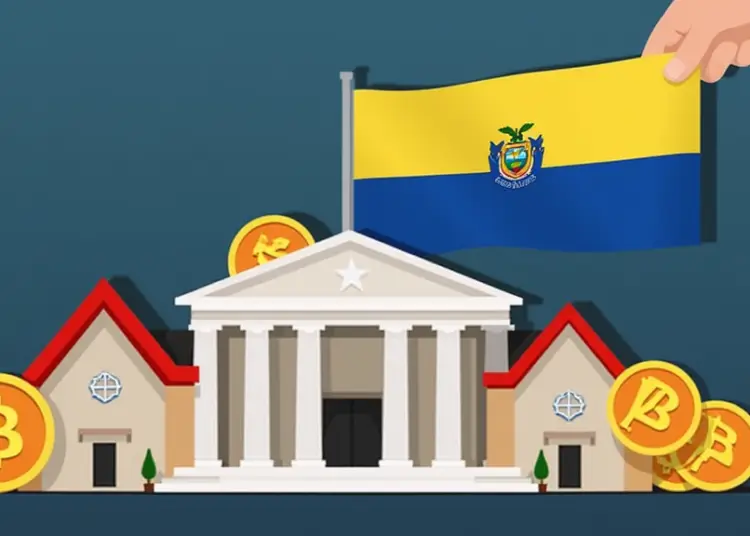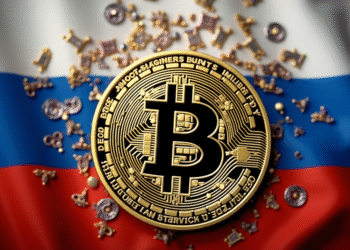El Salvador Bitcoin banking access is at the forefront of a revolutionary change in how the nation engages with cryptocurrency. As the first country to adopt Bitcoin as legal tender, El Salvador aims to become a leading hub for crypto innovation in Latin America. However, this ambitious vision is hindered by ongoing banking access issues, particularly with traditional US banks hesitant to embrace the digital asset sector. Despite President Nayib Bukele’s significant push for Bitcoin adoption, the local crypto firms still face obstacles in establishing relationships with banks, which limits their operational capabilities. This situation underscores the critical need for improved banking relations to fully realize the potential of El Salvador’s burgeoning cryptocurrency ecosystem.
Access to cryptocurrency banking in El Salvador presents both exciting opportunities and significant hurdles. Known for its pioneering stance on Bitcoin, the country has drawn attention as a potential crypto capital in the region. However, the lingering challenges with traditional banking institutions continue to pose significant barriers for crypto businesses, impeding their growth and integration into the wider financial system. The optimism surrounding Bitcoin adoption is tempered by the reality that many firms are still struggling to secure necessary banking services, reflecting broader trends in the global crypto landscape. As discussions about regulatory clarity and support for digital assets gain momentum, El Salvador’s journey towards comprehensive crypto banking access remains a pivotal aspect of its economic future.
El Salvador’s Vision for Bitcoin Banking Access
El Salvador is positioning itself as a beacon for cryptocurrency innovation in Latin America, aspiring to become the region’s crypto Silicon Valley. The nation’s ambitious agenda, largely championed by President Nayib Bukele, emphasizes Bitcoin’s role as a legal tender. However, for this vision to materialize, the country requires improved banking access for crypto firms. Despite the legal framework supporting Bitcoin, many local companies struggle to open bank accounts due to fears from traditional banks about their relationships with US counterparts. This issue underscores the critical need for El Salvador to foster a more accommodating environment for crypto banking.
As El Salvador moves forward with its Bitcoin initiatives, the support of US banks is vital. The reluctance of these banks to engage with crypto businesses stems from regulatory uncertainties and the risks associated with digital asset transactions. This situation creates a paradox where, despite the country’s progressive stance on Bitcoin, firms are still hindered by traditional banking barriers. Strengthening banking access could not only enhance the operational capabilities of crypto companies but also solidify El Salvador’s position as a leader in the global cryptocurrency landscape.
Challenges Facing El Salvador’s Crypto Firms
Despite the enthusiasm surrounding Bitcoin adoption in El Salvador, crypto firms continue to face significant challenges, particularly in accessing traditional banking services. Many businesses have reported difficulties in establishing relationships with banks, which are often wary due to the potential for regulatory scrutiny. This situation is exacerbated by the perception that the local banking sector is not fully aligned with the government’s pro-crypto policies. As a result, firms are left navigating a complicated landscape that stifles their growth and ability to innovate.
Moreover, the concerns raised by crypto businesses in El Salvador are echoed across the globe. Many countries are grappling with similar challenges, as traditional banks remain hesitant to engage with digital asset firms. The lack of clear regulatory frameworks has left banks feeling exposed, leading to a cautious approach when it comes to providing services to the crypto sector. In El Salvador, the intersection of Bitcoin law and banking access remains a contentious issue that needs to be addressed for the ecosystem to thrive.
The Role of US Banks in Crypto Adoption
The relationship between US banks and the crypto industry is undergoing a significant transformation. Traditionally, many US financial institutions have avoided engaging with digital asset firms due to regulatory concerns and the associated risks of crypto transactions. However, with increasing calls for clearer regulations and a more supportive framework for crypto operations, there are signs that this trend may be changing. Leaders from major banks are expressing a willingness to explore partnerships with crypto firms, potentially paving the way for enhanced banking access.
As discussions surrounding regulatory clarity intensify, US banks may soon find themselves at a crossroads where they must decide whether to embrace the burgeoning crypto market or continue to sidestep it. The prospect of a pro-crypto administration could further catalyze this shift, as policymakers aim to create a more favorable environment for digital asset businesses. If successful, these changes could lead to more robust banking relationships for firms in El Salvador, enabling them to flourish in a supportive financial ecosystem.
Nayib Bukele’s Bitcoin Experiment
President Nayib Bukele’s bold move to make Bitcoin legal tender in El Salvador has generated considerable attention and debate. His administration’s commitment to integrating cryptocurrency into the national economy has positioned the country as a pioneer in Bitcoin adoption. However, this ambitious experiment has not been without its challenges. While the government actively purchases Bitcoin to bolster its reserves, the lack of widespread acceptance among Salvadorans and ongoing banking issues have raised questions about the sustainability of Bukele’s vision.
As the international community watches closely, Bukele’s government remains under pressure to demonstrate the tangible benefits of its Bitcoin policies. The recent decision to ease mandatory Bitcoin acceptance in negotiations with the International Monetary Fund illustrates the balancing act the administration must perform. While the initial excitement surrounding Bitcoin adoption has begun to wane, continued efforts to improve banking access and foster a vibrant crypto ecosystem will be crucial for the long-term success of Bukele’s vision.
Optimism for Future Banking Relationships
With the potential shift in US political dynamics, optimism is growing among crypto firms in El Salvador regarding future banking relationships. The prospect of a pro-crypto administration could lead to more favorable regulations, encouraging traditional banks to engage with the digital asset sector. As policymakers work towards establishing clearer guidelines, the hope is that US banks will become more receptive to providing essential services to crypto businesses, thus facilitating their growth and integration within the financial ecosystem.
This renewed optimism is not unfounded; there are already indications that some US banks are beginning to explore ways to accommodate crypto firms. Leaders from major financial institutions have expressed a desire to collaborate with regulators to create a safer environment for crypto transactions. If these efforts yield positive results, El Salvador’s crypto ecosystem could experience a significant boost, fostering a stronger connection between local firms and traditional banking services.
Comparative Analysis of Crypto Banking Issues
When comparing the banking access issues faced by crypto firms in El Salvador to those encountered in the US, several similarities and differences emerge. In both regions, traditional banks have exhibited caution towards engaging with the digital asset sector, primarily due to regulatory uncertainties and the perceived risks involved. However, the degree of support from local governments can significantly influence how these challenges are navigated. For instance, El Salvador’s proactive stance on Bitcoin adoption contrasts sharply with the more conservative approach seen in many US jurisdictions.
Additionally, the level of public awareness and acceptance of cryptocurrency plays a crucial role in shaping the banking landscape. In El Salvador, while the government has embraced Bitcoin, public sentiment remains mixed, which can affect local banks’ willingness to engage with crypto firms. Conversely, in the US, the growing popularity of cryptocurrencies among investors and consumers is gradually prompting banks to reevaluate their positions. As the global crypto landscape continues to evolve, understanding these nuances will be essential for fostering a more inclusive banking environment.
The Future of Crypto in El Salvador
Looking ahead, the future of cryptocurrency in El Salvador hinges on several key factors, including regulatory developments and banking access. As the government continues to refine its approach to Bitcoin and other digital assets, it must also address the persistent banking challenges that hinder the sector’s growth. Strengthening ties with traditional financial institutions will be vital for creating a stable and supportive ecosystem where crypto firms can thrive.
Moreover, El Salvador’s experience could serve as a valuable case study for other nations considering similar paths toward Bitcoin adoption. The successes and setbacks faced by Bukele’s administration will provide crucial insights into the complexities of integrating cryptocurrency into a national economy. As the country navigates these uncharted waters, it is imperative for stakeholders to remain adaptable and proactive in overcoming the obstacles that lie ahead.
Reactions from the International Banking Community
The international banking community has been closely monitoring El Salvador’s pioneering approach to Bitcoin integration. Reactions have been mixed, with some financial institutions expressing concern over the potential risks associated with the country’s aggressive crypto policies. Others, however, view El Salvador’s experiment as an opportunity to learn and adapt to the changing landscape of global finance. The ongoing dialogue between El Salvador’s government and international banks will be crucial in determining the future of banking access for crypto firms.
As more countries explore the potential of cryptocurrency, the lessons learned from El Salvador’s experience could help shape global banking practices. The international community’s response to Bukele’s Bitcoin initiative may influence how regulators and financial institutions approach crypto assets in their own jurisdictions. By fostering open communication and collaboration, El Salvador might pave the way for a more inclusive and supportive banking environment for the crypto sector worldwide.
Potential Impacts of Regulation Changes
The potential changes in regulations surrounding cryptocurrency and banking access could have profound implications for El Salvador’s crypto landscape. As regulators in the US and other countries begin to clarify their positions on digital assets, the effects will likely reverberate throughout the global financial system. For El Salvador, a clearer regulatory framework could unlock new opportunities for crypto firms, enabling them to better engage with traditional banks and expand their operations.
Moreover, the evolution of regulations may also impact public perception of cryptocurrency in El Salvador. As citizens become more aware of the benefits and risks associated with digital assets, they may be more inclined to embrace Bitcoin and other cryptocurrencies. This shift in sentiment could further enhance the viability of crypto businesses, fostering a more robust and resilient ecosystem that supports the nation’s ambitions of becoming a leading player in the global crypto market.
Frequently Asked Questions
What are the current banking access issues for crypto firms in El Salvador?
Despite El Salvador’s pro-crypto stance and the implementation of its Bitcoin Law, many crypto firms face significant banking access issues. Traditional banks in the country remain cautious, often refusing to open accounts for crypto businesses due to fears of regulatory scrutiny from US banks and the international financial community.
How has Nayib Bukele’s Bitcoin Law affected banking access in El Salvador?
Nayib Bukele’s Bitcoin Law, enacted in 2021 to establish Bitcoin as legal tender, aimed to enhance the crypto ecosystem in El Salvador. However, the anticipated banking access improvements have not materialized, as many local banks still hesitate to serve crypto firms, citing concerns about their relationships with US correspondents.
Are US banks becoming more open to crypto banking in El Salvador?
There are indications that US banks might be warming up to crypto banking, especially with the potential for regulatory clarity under a new administration. Leaders like Coinbase’s Chief Policy Officer have called for banks to engage more actively with the crypto community, which could positively impact crypto banking access in El Salvador.
What role do US banks play in the banking access challenges faced by El Salvador’s crypto firms?
US banks significantly influence the banking access challenges for El Salvador’s crypto firms. Their reluctance to work with digital asset businesses due to regulatory uncertainties creates a ripple effect, causing local banks in El Salvador to also limit services for these firms to avoid potential repercussions.
What changes might improve Bitcoin banking access in El Salvador?
To improve Bitcoin banking access in El Salvador, a shift toward clearer regulations and stronger partnerships between traditional financial institutions and the crypto sector is essential. This could lead to more banks being willing to provide services to crypto firms, facilitating the growth of the industry in the region.
How does the international banking community view El Salvador’s Bitcoin adoption?
The international banking community has shown skepticism toward El Salvador’s Bitcoin adoption, particularly due to concerns about regulatory compliance and financial stability. The IMF has expressed cautious optimism, acknowledging that some feared risks have not materialized, but banking access for crypto firms remains a critical issue.
What impact has President Bukele’s policies had on crypto adoption in El Salvador?
President Nayib Bukele’s policies have positioned El Salvador as a pioneer in Bitcoin adoption, leading to global attention and investment in the crypto sector. However, the lack of banking access has hindered full realization of this potential, as many firms struggle to integrate with the traditional banking system.
Is there hope for improved banking access for crypto firms in El Salvador?
Yes, there is hope for improved banking access for crypto firms in El Salvador. Optimism is growing as US regulators begin addressing the challenges faced by crypto businesses, potentially paving the way for more favorable banking relationships and increased support from traditional financial institutions.
| Key Point | Details |
|---|---|
| El Salvador’s Crypto Ambitions | El Salvador aims to become LATAM’s crypto Silicon Valley, relying on improved banking relations. |
| Challenges with US Banks | Many US banks are hesitant to serve crypto businesses due to regulatory uncertainties and risk management costs. |
| Local Banking Access Issues | Despite pro-crypto laws, local banks often refuse to open accounts for crypto firms out of fear of US correspondent banks. |
| Optimism for Change | With potential changes in US leadership, there is hope for more favorable banking regulations for crypto. |
| IMF and Bitcoin Holdings | El Salvador holds significant Bitcoin reserves, but IMF relations have been strained due to its crypto policies. |
| Need for Banking Acceptance | For a successful crypto ecosystem, traditional financial institutions need to accept and support crypto operations. |
| Signs of Warming Relations | Some US banks show interest in exploring crypto services, which could benefit El Salvador’s banking access. |
Summary
El Salvador Bitcoin banking access remains a crucial factor for the country’s ambition to become a leader in the cryptocurrency space. While the government has implemented pro-crypto policies, the ongoing obstacles in accessing traditional banking services hinder crypto firms. Greater cooperation between local banks and the US financial system is essential to unlock the full potential of Bitcoin adoption in El Salvador. Recent developments suggest a shift in attitude among US banks, which could pave the way for improved banking access and support for the burgeoning cryptocurrency industry.













